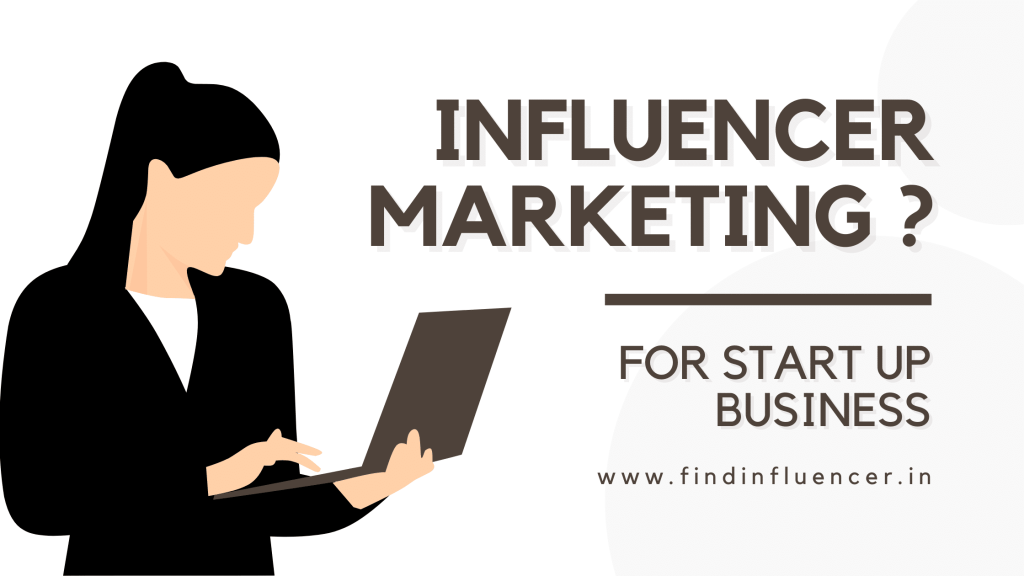What is Influencer Marketing: A Comprehensive Guide .
In the evolving landscape of digital marketing,and to know about What is influencer marketing,It has emerged as a powerful strategy for brands to connect with their target audience. This guide will delve into what influencer marketing is, its benefits, types, strategies, and how to measure its success.
Want to learn Advance Digital Marketing Course inclueding Infleuncer Marketing Modules.

What is Influencer Marketing?
Influencer marketing involves partnering with influential individuals on social media to promote products or services. These influencers have a significant following and can sway the opinions and purchasing decisions of their audience. Unlike traditional advertising, which targets a broad audience, influencer marketing leverages the trust and relationship between influencers and their followers to create more authentic and impactful promotions.
Join the Best Infleuncer Marketing Platform in India for Run Influencer Marketing Projcet.
The Evolution of Influencer Marketing
Early Beginnings
Befor knowing What is Influencer Marketing,We should know about the journery of Influencer Marketing.
Influencer marketing is not a new concept; it dates back to when celebrities and public figures endorsed products. However, the digital age and rise of social media platforms like Instagram, YouTube, and TikTok have transformed it into a more accessible and impactful strategy. Initially, celebrities were the primary influencers, but the trend has now shifted towards more relatable figures, such as micro and nano-influencers, who often have a more engaged and niche audience.
Rise of Social Media
With the advent of social media, everyday individuals with significant followings began to emerge as influencers. Platforms like Instagram and YouTube allowed these individuals to share their lives, thoughts, and preferences, cultivating a loyal audience. Brands quickly recognized the potential of these influencers in reaching highly targeted groups and started forming partnerships.
Types of Influencers
Mega-Influencers
Mega-influencers are typically celebrities or individuals with over a million followers. They have a broad reach and can generate a significant amount of visibility for a brand. However, their engagement rates tend to be lower compared to other types of influencers.
Macro-Influencers
Macro-influencers have between 100,000 to 1 million followers. They are often well-known figures within their niche and have a substantial reach, making them valuable for brands looking to target a specific demographic.
Micro-Influencers
Micro-influencers have between 10,000 to 100,000 followers. They often have higher engagement rates and more personal interactions with their audience. Brands find micro-influencers effective for reaching highly targeted audiences and for driving authentic engagement.
Nano-Influencers
Nano-influencers have less than 10,000 followers but often have a very close and engaged community. They are seen as highly trustworthy and relatable, making their recommendations highly influential among their followers.
Benefits of Influencer Marketing
Enhanced Credibility and Trust
Influencers have built a level of trust and credibility with their followers, which brands can leverage. When an influencer endorses a product, it can lead to increased trust and credibility for the brand among the influencer’s followers.
Targeted Reach
Influencers allow brands to reach a specific audience that is more likely to be interested in their products or services. This targeted approach can lead to higher conversion rates and a better return on investment (ROI).
Improved Content Strategy
Collaborating with influencers provides brands with high-quality content that can be repurposed across various marketing channels. Influencers are adept at creating engaging content that resonates with their audience, providing brands with fresh and relevant material.
Enhanced Engagement
Influencers can drive higher levels of engagement compared to traditional advertising. Their content often sparks conversations, shares, and comments, leading to increased visibility and interaction for the brand.
Implementing an Influencer Marketing Strategy
Identify Goals
Before launching an influencer marketing campaign, it’s crucial to define clear goals. These could include increasing brand awareness, driving sales, growing social media following, or enhancing engagement. Having specific goals helps in measuring the success of the campaign.
Choose the Right Influencers
Selecting the right influencers is critical to the success of the campaign. Brands should consider factors such as the influencer’s niche, follower demographics, engagement rates, and authenticity. Tools and platforms are available to help brands find influencers that align with their objectives.
Develop Authentic Partnerships
Authenticity is key in influencer marketing. Brands should collaborate with influencers in a way that allows them to maintain their voice and authenticity. Genuine partnerships where influencers truly believe in the product lead to more authentic and persuasive endorsements.
Create Engaging Content
The content created for influencer campaigns should be engaging, visually appealing, and aligned with the brand’s messaging. Influencers should have creative freedom to ensure the content resonates with their audience.
Monitor and Measure Performance
Tracking the performance of influencer marketing campaigns is essential. Brands should monitor metrics such as engagement rates, reach, conversions, and ROI. Tools and analytics platforms can provide valuable insights into the effectiveness of the campaign.
Challenges of Influencer Marketing
Finding the Right Influencers
With the plethora of influencers available, finding the right one for your brand can be challenging. Brands need to invest time and resources into researching and vetting potential influencers to ensure a good fit.
Managing Relationships
Maintaining good relationships with influencers requires ongoing communication and collaboration. Brands need to ensure that influencers are happy and feel valued, which can be time-consuming.
Measuring ROI
Measuring the ROI of influencer marketing can be complex. Unlike traditional advertising, the impact of influencer marketing is not always immediately quantifiable. Brands need to use a combination of metrics and analytics to assess the success of their campaigns.
Navigating Regulations
There are various regulations and guidelines around influencer marketing that brands need to comply with. For example, influencers are required to disclose sponsored content to ensure transparency. Brands need to stay updated on these regulations to avoid legal issues.
Future Trends in Influencer Marketing
Rise of Nano and Micro-Influencers
The trend towards using nano and micro-influencers is expected to continue as brands seek more authentic and engaged audiences. These influencers often provide higher engagement rates and more niche targeting.
Increased Use of AI and Analytics
Artificial Intelligence (AI) and advanced analytics are playing a growing role in influencer marketing. These technologies can help brands identify the right influencers, predict campaign outcomes, and measure performance more accurately.
Expansion to New Platforms
As new social media platforms emerge, influencer marketing will continue to expand. Platforms like TikTok have already shown immense potential, and brands will explore opportunities on these and other emerging platforms.
Focus on Long-Term Partnerships
Brands are shifting towards long-term partnerships with influencers rather than one-off campaigns. These sustained collaborations can build stronger relationships, enhance authenticity, and deliver more consistent results.
Conclusion
Influencer marketing has become a powerful tool in the modern marketer’s arsenal. By leveraging the trust and credibility that influencers have built with their followers, brands can achieve enhanced engagement, targeted reach, and improved ROI. While there are challenges to navigate, the potential benefits make influencer marketing a valuable strategy for brands looking to connect with their audience in an authentic and impactful way.
